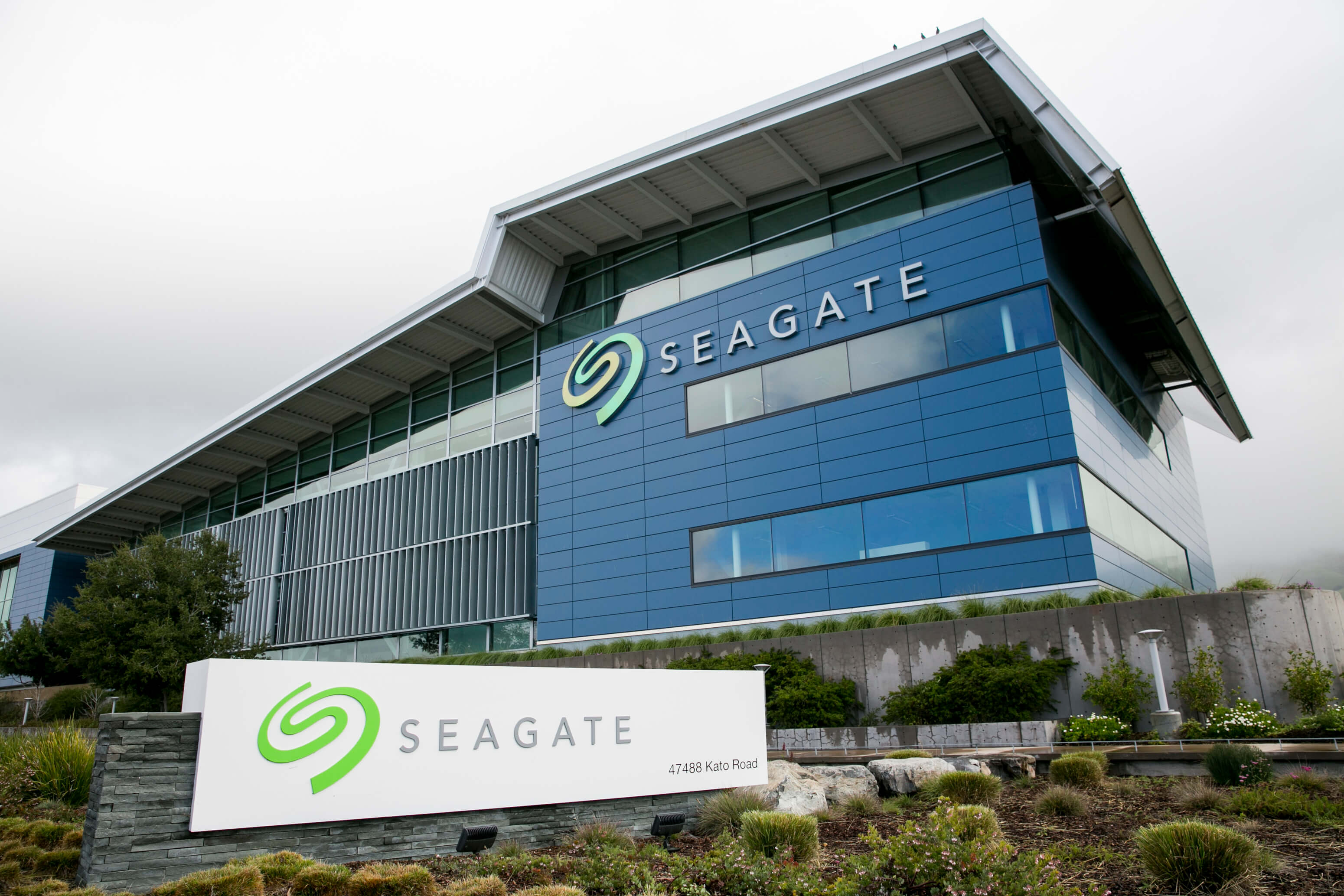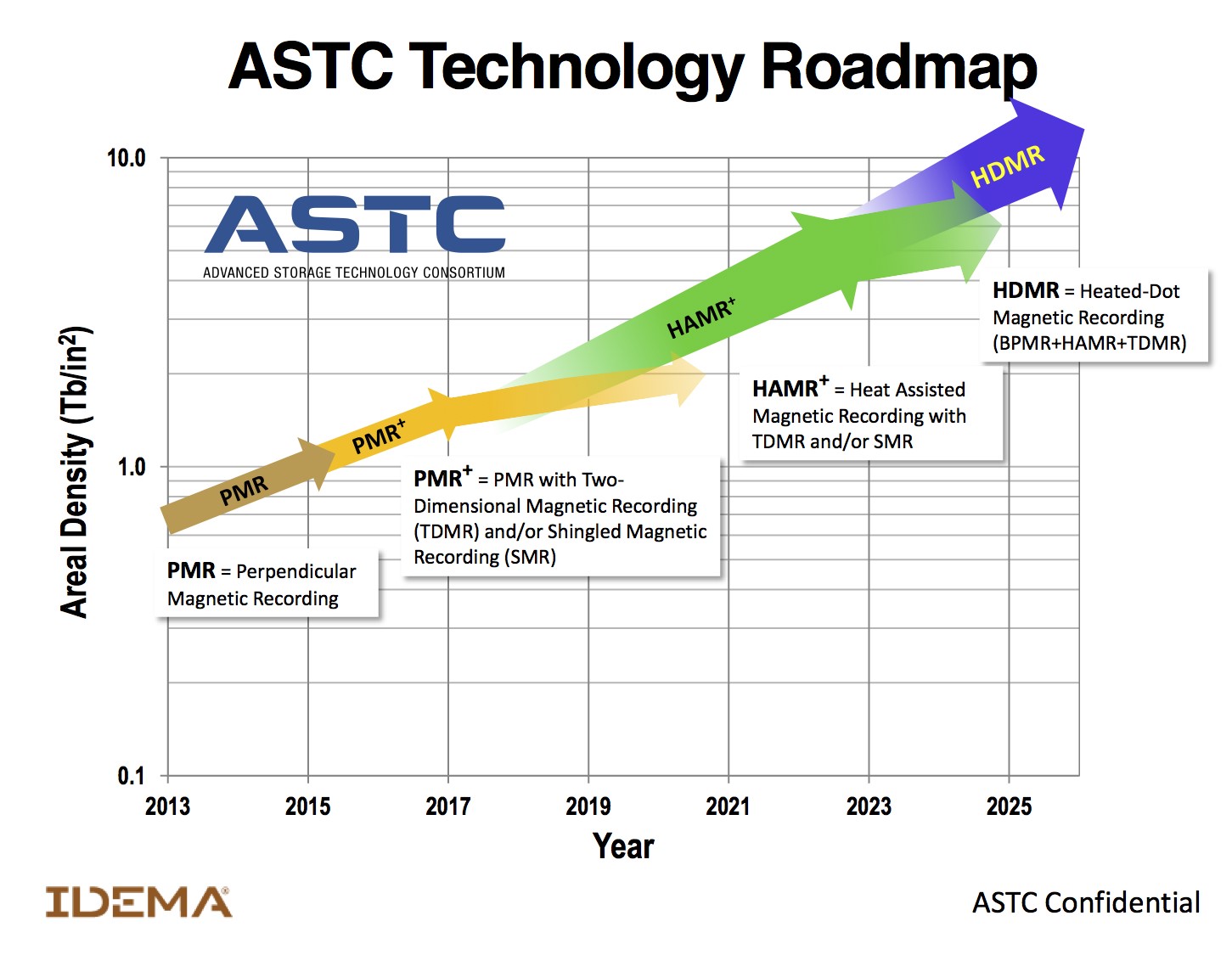
Even though solid state drives are an essential for performance, the need for cost effective high capacity storage is still growing. Seagate is aiming to tackle the problem using heat assisted magnetic recording (HAMR) and then transitioning to heated-dot magnetic recording (HDMR) once the technology is ready for production.
HAMR has been under development since the 1990s, but newer manufacturing processes and improved electronic components have allowed it to remain useful and continue to increase storage densities. Few products available to general consumers have used this technology previously. By 2020, Seagate is aiming to produce 20TB hard drives using HAMR.

Seagate plans to launch its first commercially available HAMR drives in late 2018 or early 2019. Drive capacities are expected to be 16TB initially with increased storage density as the technology matures. HAMR will be limited to 3.5" form factors during early stages, so external and cloud storage will remain a need for accessing mass amounts of data from mobile devices.
Current estimates from Seagate indicate that 50TB hard drives should be possible within a decade. Adding a bit pattern to HAMR turns it into HDMR, which is said to be scalable to 100TB or possibly even beyond.
In terms of cost effectiveness, traditional hard drives are expected to remain several orders of magnitude cheaper than any flash-based storage options, but speed is a major concern. Offering 100TB hard drives sounds great, but unless throughput is increased significantly, it could make it difficult to make use of all available space.
https://www.techspot.com/news/71551-seagate-reveals-storage-roadmap-showing-20tb-drives-2020.html